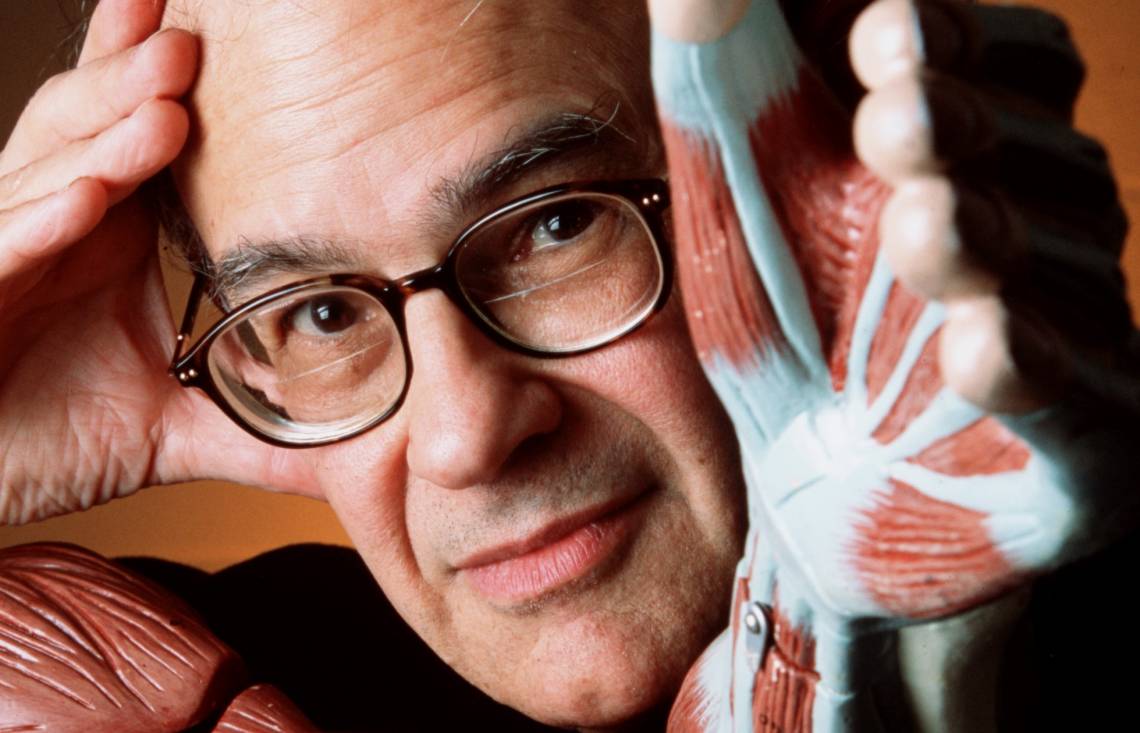Duke Flags Lowered: Biomechanics Pioneer Steven Vogel Dies

Duke biologist Steven Vogel, whose eclectic research interests ranged from flying insects and fluttering leaves to swimming squid and nectar-slurping hummingbirds, died on Nov. 24 at Croasdaile Village in Durham. He was 75.
Vogel is widely regarded as one of the founders of the field of comparative biomechanics, an area of science that “touches on everything from why ants can’t throw rocks to why a fish can outswim a duck,” Vogel told an audience at the Natural History Museum of Los Angeles County in 1990.
Vogel studied biological fluid mechanics, or the effects of winds and currents on the squishy, stretchy world of living things. Working at the intersection of biology, mathematics and physics, he investigated everything from the ventilation of prairie dog burrows, to the flows of seawater through marine sponges and air through moth antennae, to how trees and seaweed survive in high winds and crashing waves.
“Steve was such force in our lives and in the field,” said biologist Tom Daniel of the University of Washington, who earned a Ph.D. under Vogel’s mentorship in 1982.
Vogel was born on April 7, 1940, in Beacon, New York. His parents, Max and Jeanette Vogel, owned a drugstore where Vogel worked after school from ages 14 to 25.
He earned a bachelor’s degree from Tufts University and a master’s and doctorate from Harvard University and then joined the Duke faculty in 1966, where he began a research and teaching career that would last more than 40 years.
Vogel was unusual among scientists in opting out of the granting process to raise money for his research, instead funding most of his work with his own salary.
“He thought pitching science for funding limited creativity,” said Vogel’s former student Laura Miller, who is now a math and biology professor at UNC.
Vogel was known for designing elegant experiments on a shoestring budget, building devices such as flow tanks and wind tunnels from scrap wood and spare appliance parts he pieced together in the Duke zoology department’s machine shop.
“I’ve developed a fair contempt for fancy commercial gear,” he wrote in the preface to his textbook, “Life in Moving Fluids.”
“Nobody excelled at getting more science per unit budget than Vogel,” said former colleague and entrepreneur Chuck Pell. “He once set himself a budget of five dollars to answer a research question. He did it for less than half of that.”
UNC professor Laura Miller still uses one of Vogel’s contraptions, a screw pump immersed in a vat of syrup that Vogel referred to as the “glop tank.”
“All of the companies I called told me they didn’t have anything that would work. Steve, on the other hand, told me he had just the thing,” Miller said.
A shameless and unapologetic punster, Vogel handed her the tank and said, “this will get you into a lot of sticky situations.”
For his excellence in teaching, Vogel received the Trinity College Distinguished Teaching Award in 1986.
“When I was a graduate student (at Duke in the 1970s), there were very few women in science and very few faculty members who thought we should be there. Vogel was different,” said biologist Mimi Koehl, now a professor at the University of California at Berkeley.
“He encouraged me to learn to fabricate my research equipment in his machine shop, but often said, ‘A woman using a lathe is a hairy problem.’ This was his Vogel-esque ‘pun-ishment’ when I forgot to tie my hair back before I turned on the motor,” Koehl said.
Former Duke undergraduate Melina Hale, now a biomechanics and neurobiology professor at the University of Chicago, remembers a freshman seminar Vogel taught in the spring of 1989. He brought freshly baked muffins to class every morning, and invited his students to walk inside a giant wind tunnel.
“He wanted us to experience the physical world of plants and animals firsthand instead of just talking about it,” Hale said. “I came away thinking about the world in an entirely different way.”
Vogel was the author of ten books and numerous articles admired for their clarity, humor and wit.
Vogel’s fourth book, “Life’s Devices,” was awarded a $25,000 Irving and Jean Stone Prize for Science Writing for Public Understanding, and his popular writing appeared in magazines such as Natural History and Discover.
“We called him a one man book-of-the-month club,” Pell said.
Despite officially retiring from Duke in 2006, Vogel continued to write and teach classes until this year. He is survived by his wife, Jane Vogel, a sister, Marjorie Dosik, his son and daughter-in-law Roger and Frances Vogel, and three grandchildren.
Friends and colleagues can express their condolences at http://www.hallwynne.com/dr-steven-vogel/.